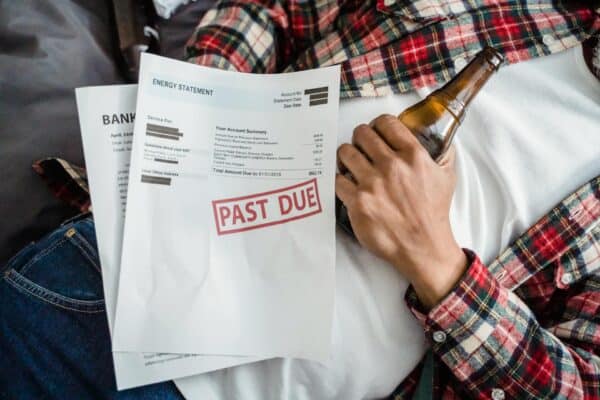
Overwhelming debt is far more debilitating than most people realize. The weight of monthly payments, high interest rates, and constant calls from collectors can leave you feeling stuck. You might even begin to wonder: Should I pay off the debt, or is it time to consider bankruptcy for a fresh start?
The answer isn’t the same for everyone. It ultimately depends on your financial situation, the type of debt you have, your ability to manage repayment, and other related factors.
Let’s break things down to help you decide what’s right for you.
When Paying Off Your Debt Makes Sense
In many cases, rolling up your sleeves and paying off your debt is the better option, especially if your financial situation isn’t necessarily dire. You might consider this option if:
- Your Debt Is Manageable. If your total debt is something you can reasonably pay off over time, bankruptcy might be unnecessary. A manageable debt load typically means you can make minimum payments without sacrificing basic needs like housing, utilities, or food. For example, if you owe $10,000 on a credit card but have a stable income and can create a realistic budget to pay it off within a few years, paying down the debt is likely your best bet.
- You Have a Steady Income. If you’re employed and earning enough to cover your monthly expenses and put extra toward your debt, there’s a clear path forward. Budgeting, cutting expenses, and possibly picking up extra work can help you chip away at what you owe. Debt repayment takes discipline, but it can also protect your credit score and give you peace of mind, knowing you’ve handled your obligations without filing for bankruptcy.
- You Want to Protect Your Credit Score. Filing for bankruptcy can have a significant impact on your credit score, staying on your credit report for up to 10 years (depending on the type of bankruptcy). If maintaining good credit is important to you – for example, if you’re planning to buy a home or finance a car soon – it might be worth working out a repayment plan instead of filing.
When Filing for Bankruptcy Is the Better Option
Sometimes, no matter how hard you try, paying off your debt just isn’t realistic. If you’re in a position where the stress and financial strain are overwhelming, bankruptcy might be a better choice. Here’s when filing for bankruptcy makes more sense:
- Your Debt Is Overwhelming. If your debt has spiraled to a point where even making minimum payments feels impossible, it’s worth considering bankruptcy. For instance, if you’re dealing with tens of thousands of dollars in high-interest credit card debt or medical bills, and you see no realistic way to pay it off in the foreseeable future, bankruptcy can provide relief. Chapter 7 bankruptcy, in particular, can discharge unsecured debts like credit card balances and medical bills, giving you a clean slate.
- You’re Facing Constant Harassment. When creditors won’t stop calling, emailing, or even suing you, the stress can take a serious toll on your mental health. Filing for bankruptcy triggers an automatic stay, which immediately halts all collection activities. This gives you breathing room to focus on rebuilding without the constant pressure of creditors.
- Your Financial Situation Isn’t Improving. If you’ve tried budgeting, negotiating with creditors, or consolidating your debt but still find yourself falling further behind, it might be time to explore bankruptcy. This is especially true if you’re stuck in a cycle of paying only the interest on your debt without making a dent in the principal balance.
- You’re at Risk of Losing Assets. If you’re behind on mortgage or car payments and at risk of losing your home or vehicle, bankruptcy may be the best way to protect your assets. While Chapter 7 bankruptcy can eliminate unsecured debts, Chapter 13 bankruptcy allows you to restructure and catch up on secured debts, like your mortgage, while keeping your property.
- Bankruptcy Is Your Only Path to Relief. If you’ve reached the point where no amount of budgeting or repayment can realistically get you out of debt, bankruptcy might be your best option. It’s designed as a legal and financial safety net for people who truly need it, providing a fresh start for those drowning in unmanageable obligations.
Where Do You Go From Here?
The decision of what to do ultimately depends on your financial situation and long-term goals. To determine the best course of action:
- Assess Your Debt: Calculate your total debt and compare it to your income and monthly expenses.
- Explore Alternatives: Consider debt consolidation, credit counseling, or negotiating with creditors.
- Consult a Professional: Speak with a financial advisor or bankruptcy attorney to understand your options and the potential impact on your finances.
The decision to pay off your debt or file for bankruptcy is deeply personal, and there’s no one-size-fits-all answer. Whatever path you choose, remember that financial struggles don’t define you.
Take proactive steps, and you can reclaim control of your finances and work toward a brighter future.
 Gearfuse Technology, Science, Culture & More
Gearfuse Technology, Science, Culture & More


